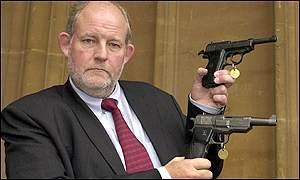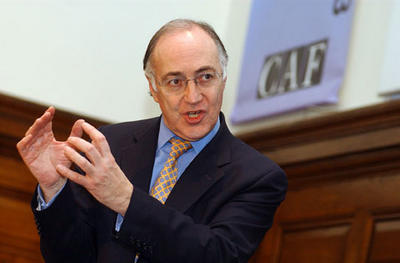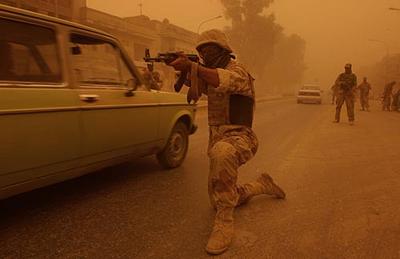Britain is such a soft-touch:More than half the jails in England and Wales are dangerously overcrowded and the conditions could be contributing to the number of prisoner suicides, a penal reform group warned last night.
The Prison Reform Trust, which campaigns on behalf of inmates and their families, said the prison system had 10,000 more inmates than it was designed to hold.
With inmates reaching a record 76,897 this week, 74 of the 142 jails are over the prison service's "certified normal accommodation", the charity said. It added that 15 prisons exceeded even their safe overcrowding limit in July.
The "operational capacity" of a jail is defined as the total number of prisoners it can accommodate, allowing for a safe level of overcrowding
In July last year, the then prisons' minister, Paul Goggins, was asked in parliament about overcrowding. He said: "All those prisons are within their operating capacity, which is the total number of prisoners that an establishment can hold, taking into account control, security and proper operation of the planned regime."
But a year on, the charity said, 15 prisons across England and Wales were operating beyond their overcrowding limit, thereby jeopardising, the "control, security and the proper operation of the planned regime".
"This overcrowding poses a real and serious danger to prison and public safety," said Juliet Lyon, the director of the trust. The government had grown complacent about overcrowding and was "breaching its own final buffer".
"The summer holiday season usually gives prisons a respite while the courts take their break, instead the population is growing month on month. Even in the quietest months of the year, pressure is still building up within prisons."
The charity fears the situation could worsen in the next five years. The most recent Home Office projections forecast a jail population of up to 90,000 by 2010.
Since the beginning of June, it said, there had been 26 apparent self-inflicted deaths in custody. Of these, 24 occurred in overcrowded jails.
There a few reasons why the prisons are so overcrowded, especially at this moment in time. We've recently emerged from an election campaign where crime, asylum and especially "anti-social behaviour" were all major issues, with both Labour and the Tories demanding further crackdowns, egged on by the tabloid and right-wing press. It's been noted before that in such an atmosphere judges feel inclined, subconsciously or not, to impose both longer sentences and to send offenders to prison who otherwise may have ordinarily faced a community penalty or fine. Anti-social behaviour and binge drinking have been this year's main crime related news stories, rarely out of the press and TV coverage for even a day. Offences linked to such are therefore punished more severely. Also of concern is the anti-social behaviour order legislation itself, which has led to prostitutes, beggars and even sufferers of Tourettes syndrome being given custodial sentences for breaking the terms of their order, even though they are not breaking any laws.
The situation in our prisons will not get any better until we start to completely rethink the way we punish offenders who break the law. Prison has never worked for minor offences, with the revolving door system leading not only to re-offending but also to more serious offences. Similar to the way in which people feel more secure with police patrolling the streets in a visible presence, a demand constantly made by the tabloid press, the general public feels safer when 'criminals' are locked away. Unless we challenge our basic assumptions and orthodoxies, more and more of the mentally ill, different and weak in our society will end up in jail. A suicide in prison only makes the news if it's a notorious offender, such as Harold Shipman. Otherwise it's confined to the news in brief section, even in the broadsheets. As the article states, 26 have killed themselves since the beginning of June, a highly upsetting figure.
The Conservative party pledged to build dozens more prisons in their election manifesto. Labour didn't challenge that with any great ferocity, after all, they've spent the last 9 years in power building new prisons with the private finance initiative and putting more jails in the hands of the private sector. When people being imprisoned are handed over to those only interested in making a profit, not only have we lost all sense of our ethics, we've also lost our moral superiority. Jail should be the last resort, for those who pose a real threat to society and others. Imprisoning prostitutes, shoplifters and beggars may make some of us feel better, but in the long run we all lose out.








